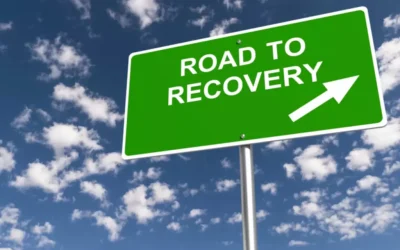Content
If a relapse occurs, it’s important to remember that this is not a sign of failure, but a blip on the road to lifelong sobriety. It may signify that your course of treatment needs to change for the time being, but that is something you should always discuss with your healthcare provider and/or therapist. There are medications that can be very helpful in treating alcohol addiction, but none of them can fully cure the addiction altogether. Some medications help reduce and prevent withdrawal symptoms as someone cuts back or quits using alcohol. Other medications can reduce cravings for alcohol or interfere with the way alcohol affects the brain so that people do not experience the same pleasure or buzz when they consume it. There is even a medication (Disulfiram) that helps people abstain from alcohol because it makes them physically ill when they drink.
Alcohol use disorder includes a level of drinking that’s sometimes called alcoholism. Treatment for alcohol use disorder can vary, depending on your needs. Treatment may involve a brief intervention, individual or group counseling, an outpatient program, or a residential inpatient stay. Working to stop alcohol use to improve quality of life is the main treatment goal. The way this process works is when people normally drink alcohol, endorphins are released into the brain, and this reinforces the behavior of drinking alcohol.
What is alcohol use disorder?
Campral (acamprosate) is the most recent medication approved for the treatment of alcohol dependence or alcoholism in the U.S. Some people avoid medically supervised rehab because they prefer natural remedies for alcohol withdrawal. Slowly tapering off alcohol is the safest way to naturally overcome alcohol withdrawal, and many at-home remedies can help you cope with mild withdrawal symptoms.
- As shown in COMBINE, no single medication or treatment strategy is effective in every case or in every person.
- This usually applies to people who have other alcoholics in their family.
- If you’re concerned about someone who drinks too much, ask a professional experienced in alcohol treatment for advice on how to approach that person.
More than 14 million adults ages 18 and older have alcohol use disorder (AUD), and 1 in 10 children live in a home with a parent who has a drinking problem. Alcohol use disorder can cause serious and lasting damage to your liver. Your liver is responsible for removing toxins from your blood. When you drink too much, https://ecosoberhouse.com/ your liver has a harder time filtering the alcohol and other toxins from your bloodstream. You doctor also can refer you to a treatment center or experts who can help. Alcohol use disorder is what doctors call it when you can’t control how much you drink and have trouble with your emotions when you’re not drinking.
How is alcoholic ketoacidosis treated?
People who are willing to take that important first step will find there is a lot of help available, which is all designed to help them achieve a successful recovery. Join the thousands of people that have called a treatment provider for rehab information. Ultimately, sobriety is the responsibility of the person who has the alcohol addiction.

Hosted by therapist Amy Morin, LCSW, this episode of The Verywell Mind Podcast shares strategies for coping with alcohol cravings and other addictions, featuring addiction specialist John Umhau, MD. All Addiction can alcoholism be cured Resource content is medically reviewed or fact checked to ensure as much factual accuracy as possible. Doctors who evaluate if alcoholism is a disease often look at the extent of the damage caused by alcohol.
Residential treatment programs
That definition does not require full abstinence from alcohol and also does not view abstinence itself as full recovery. As the lines between real and fake blur, Americans increasingly chase the idea of authenticity. The first step may be to consider self-knowledge, truthfulness, and other building blocks on the road to personal growth. Get the help you need from a therapist near you–a FREE service from Psychology Today. Ultimately, receiving treatment can improve your chances of success. Doctors and other experts can keep an eye on you and give you medicine to help with your symptoms.
